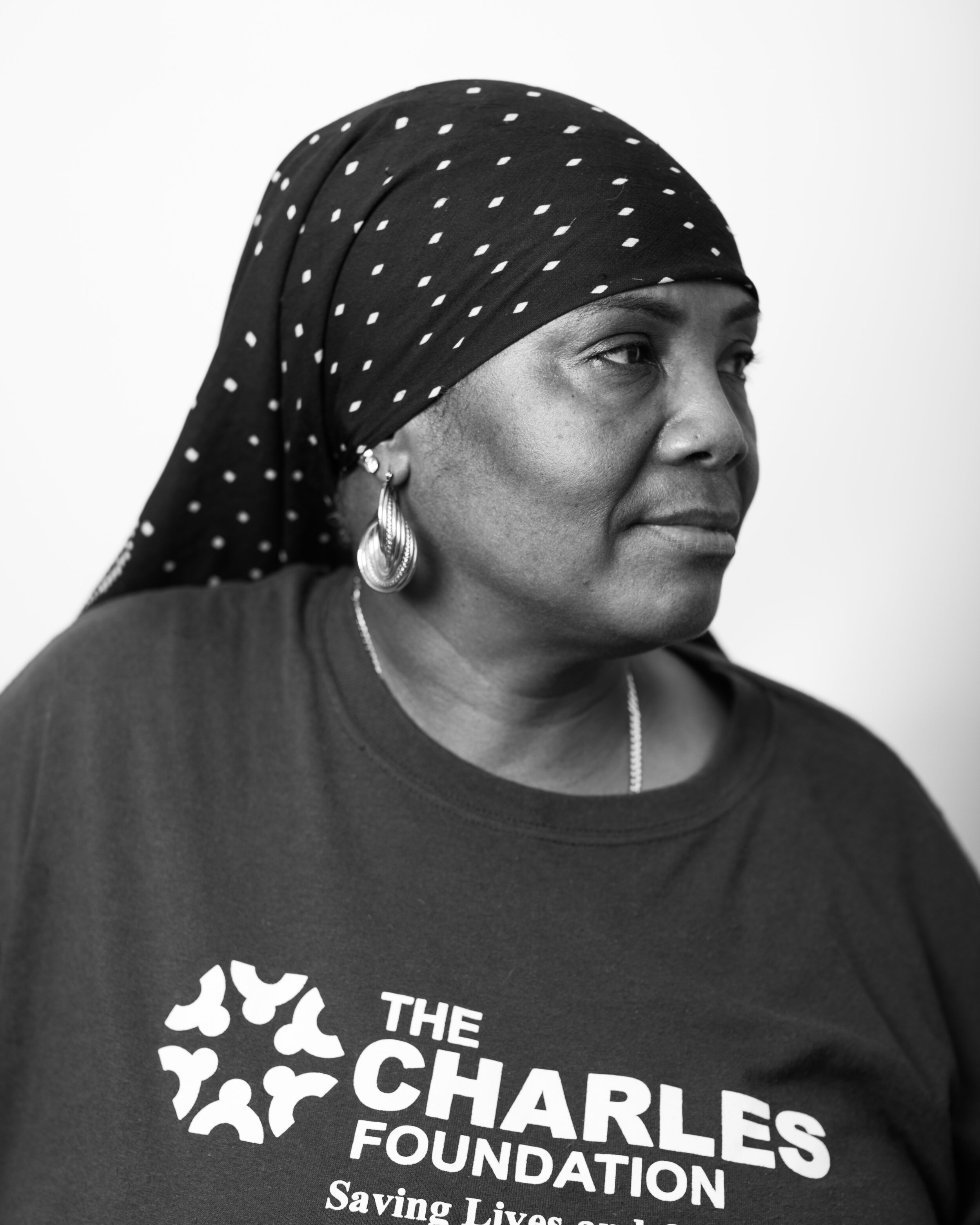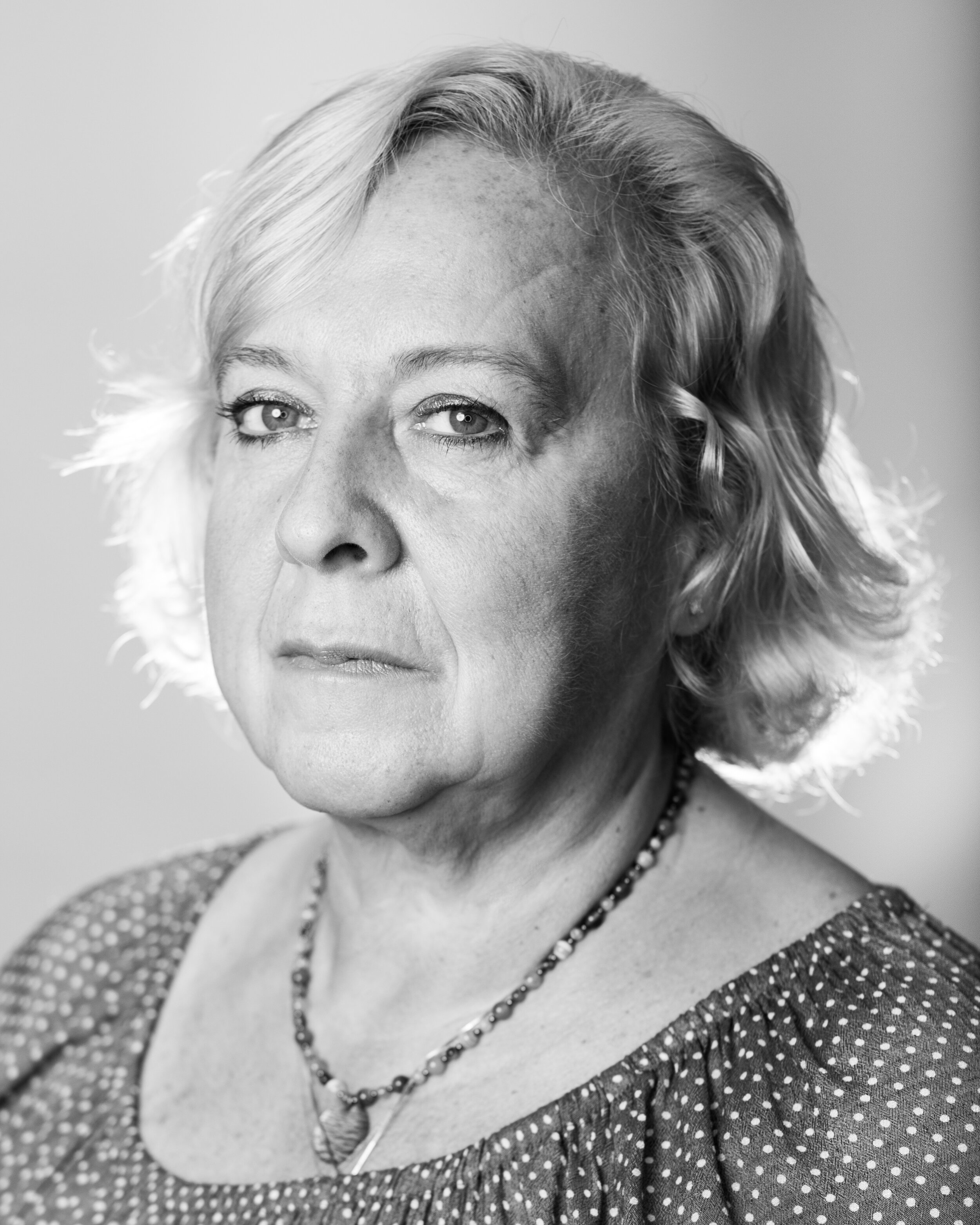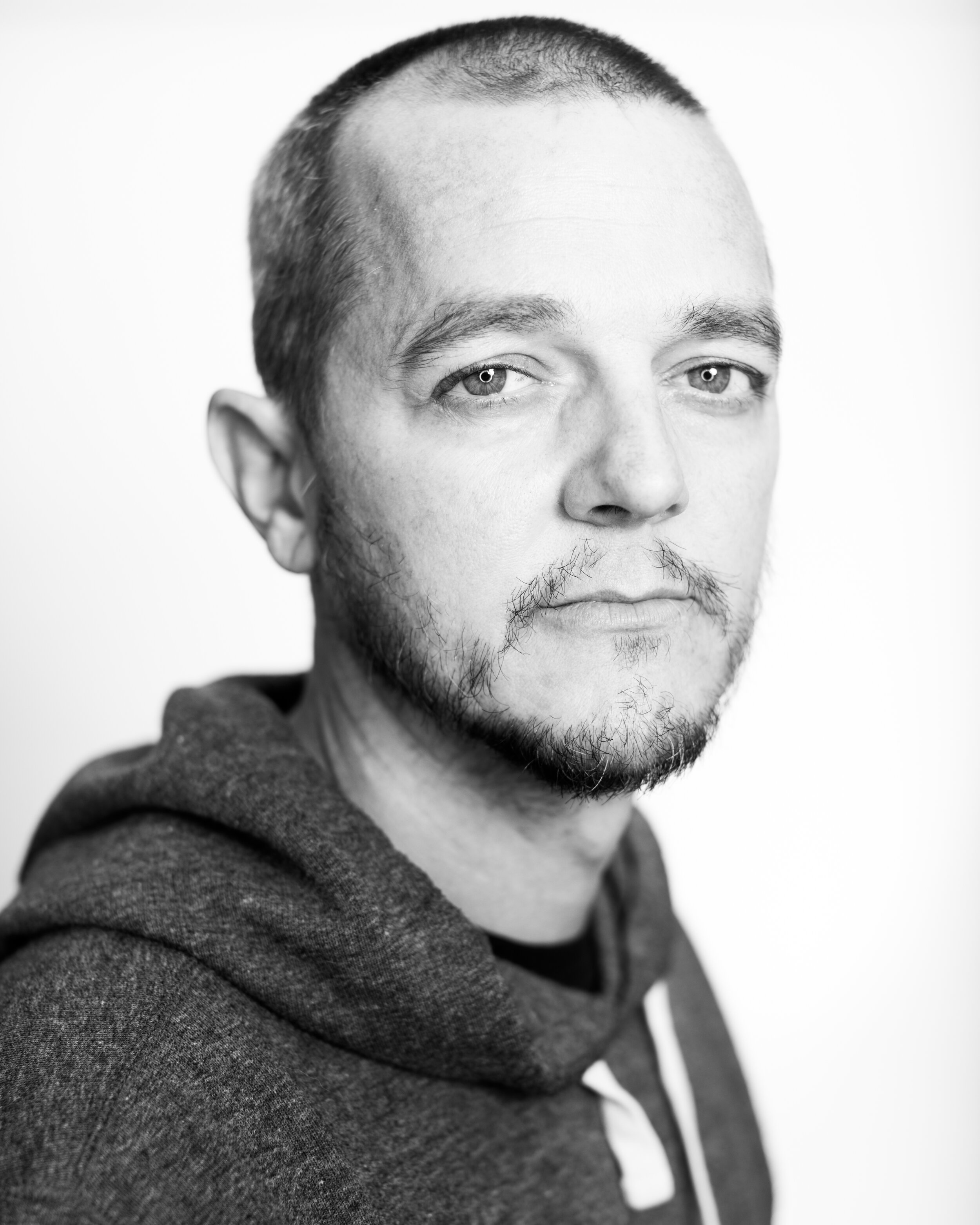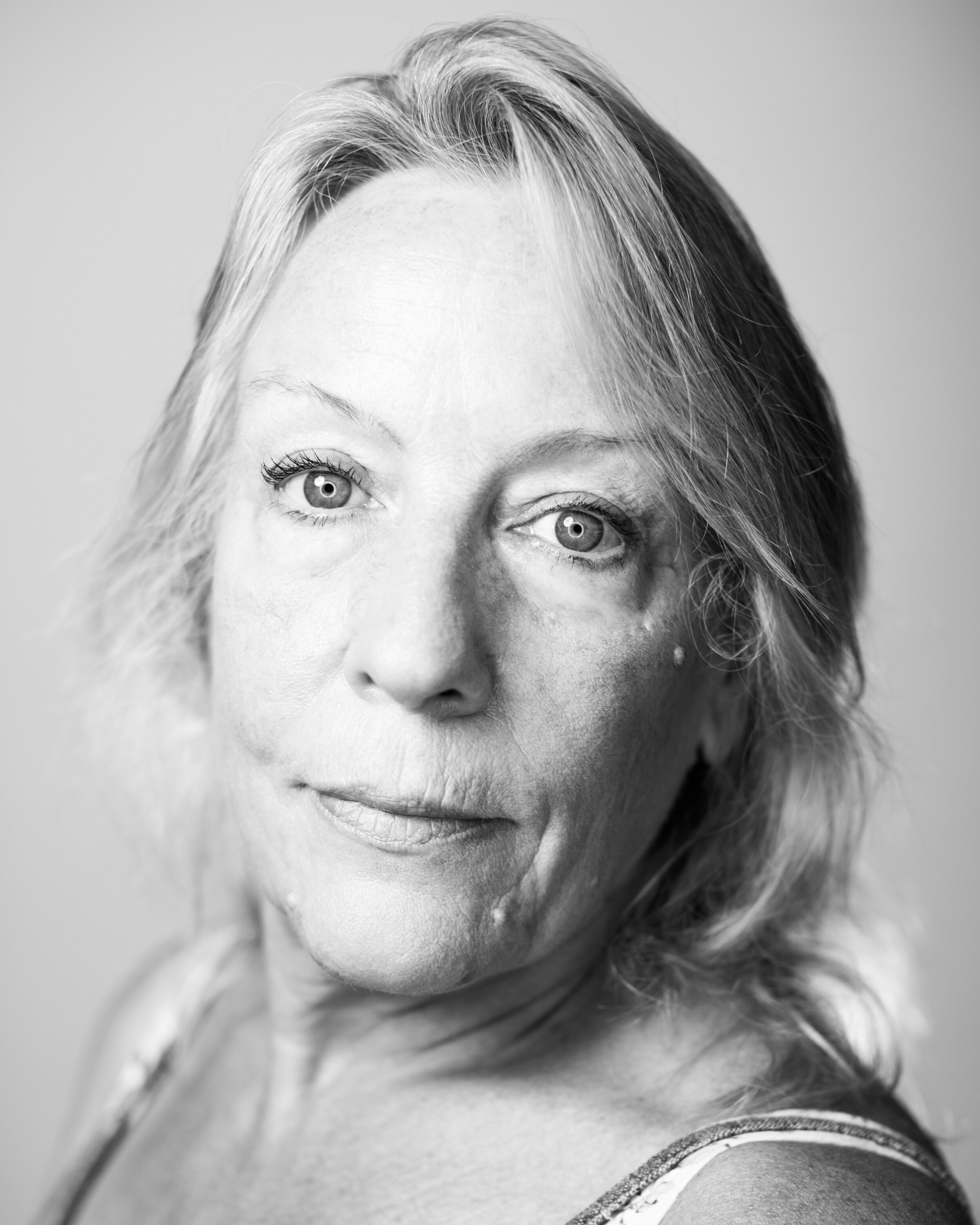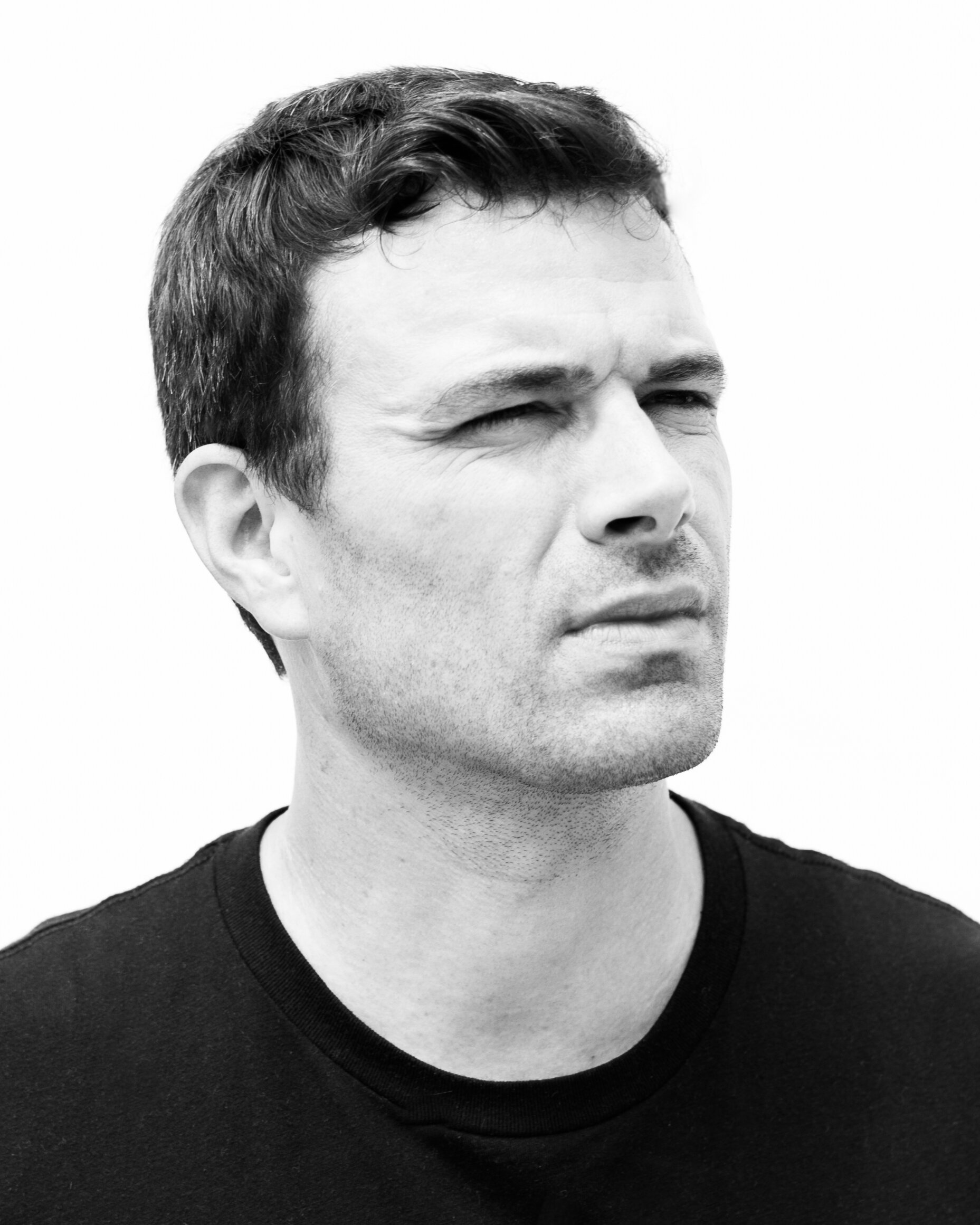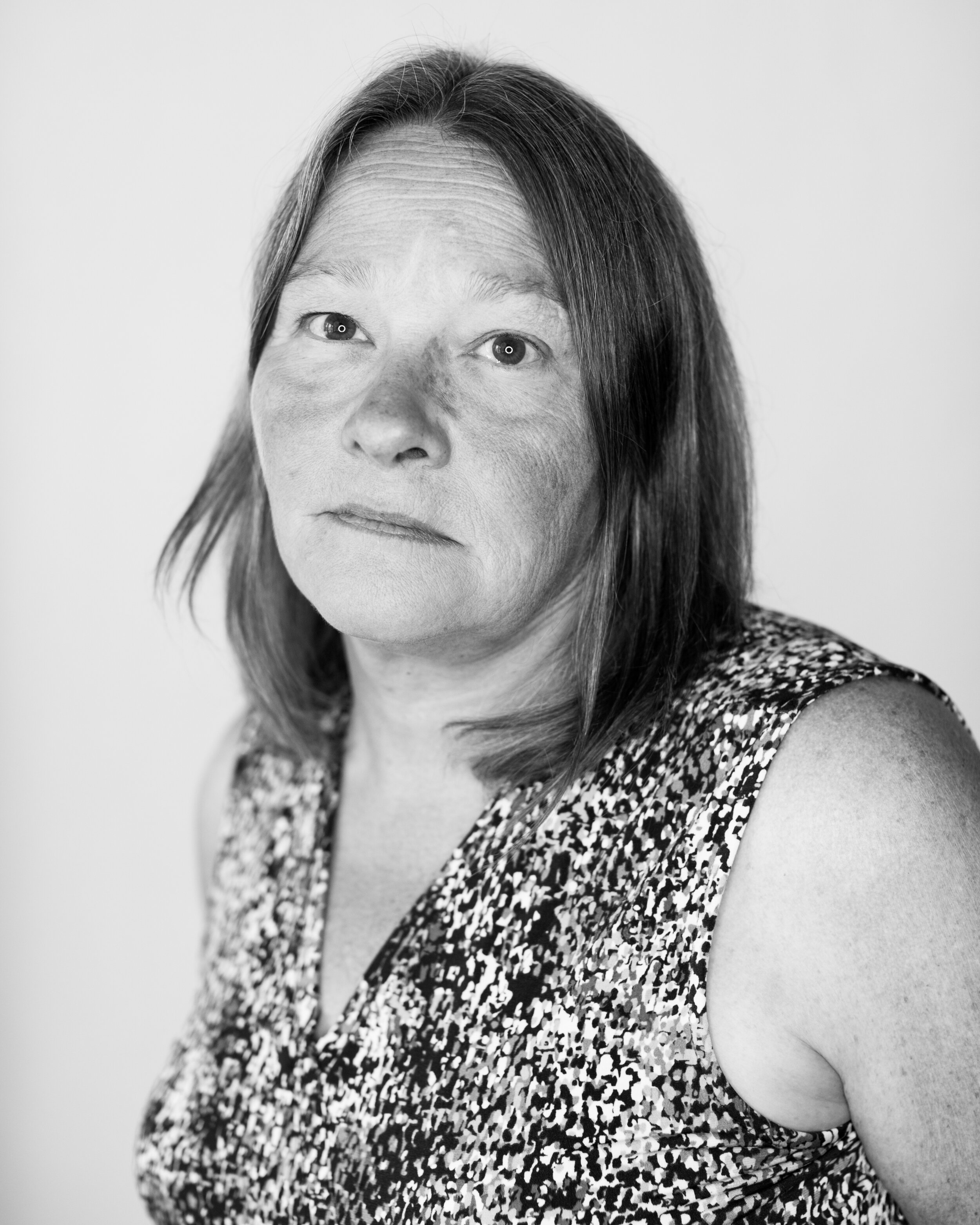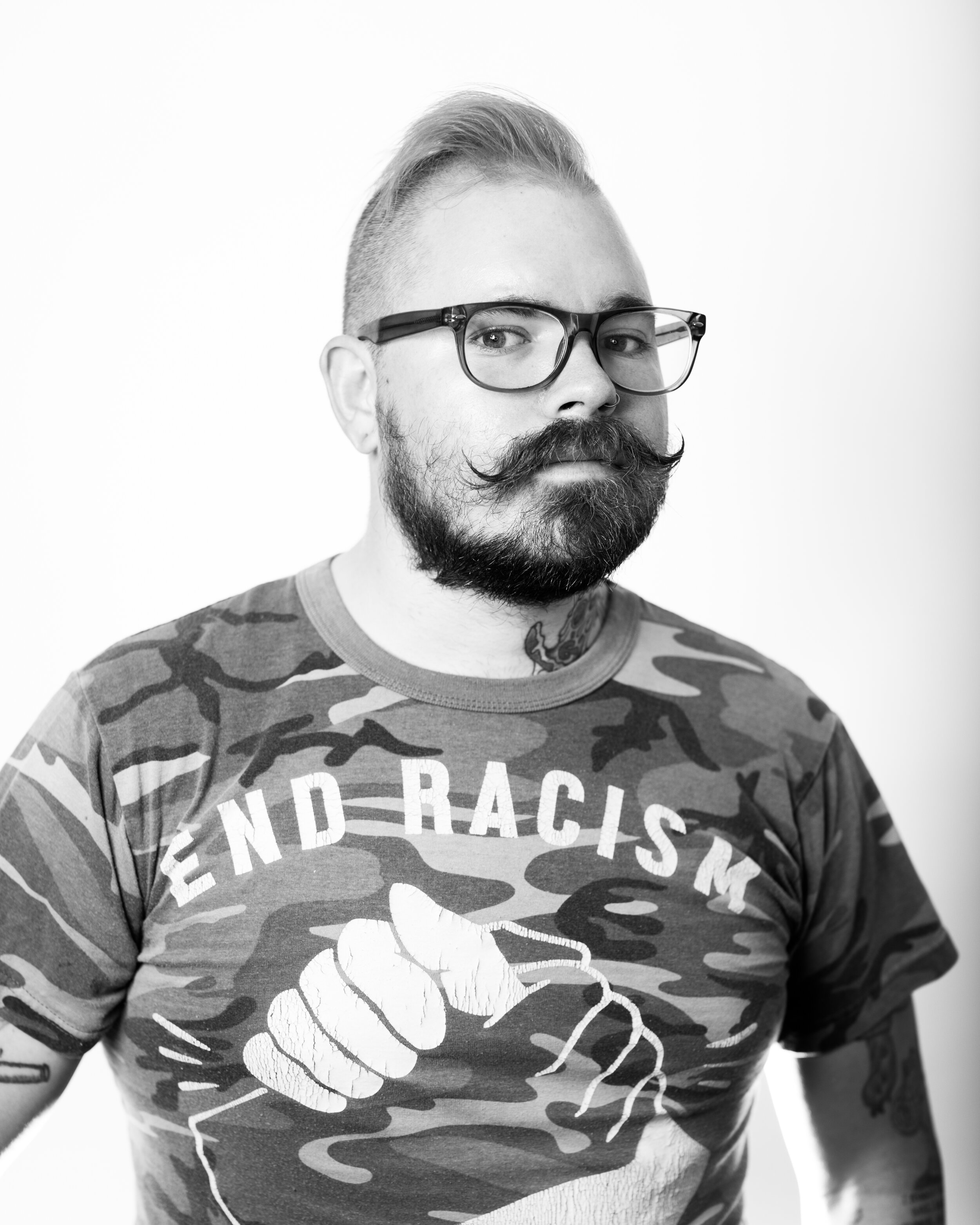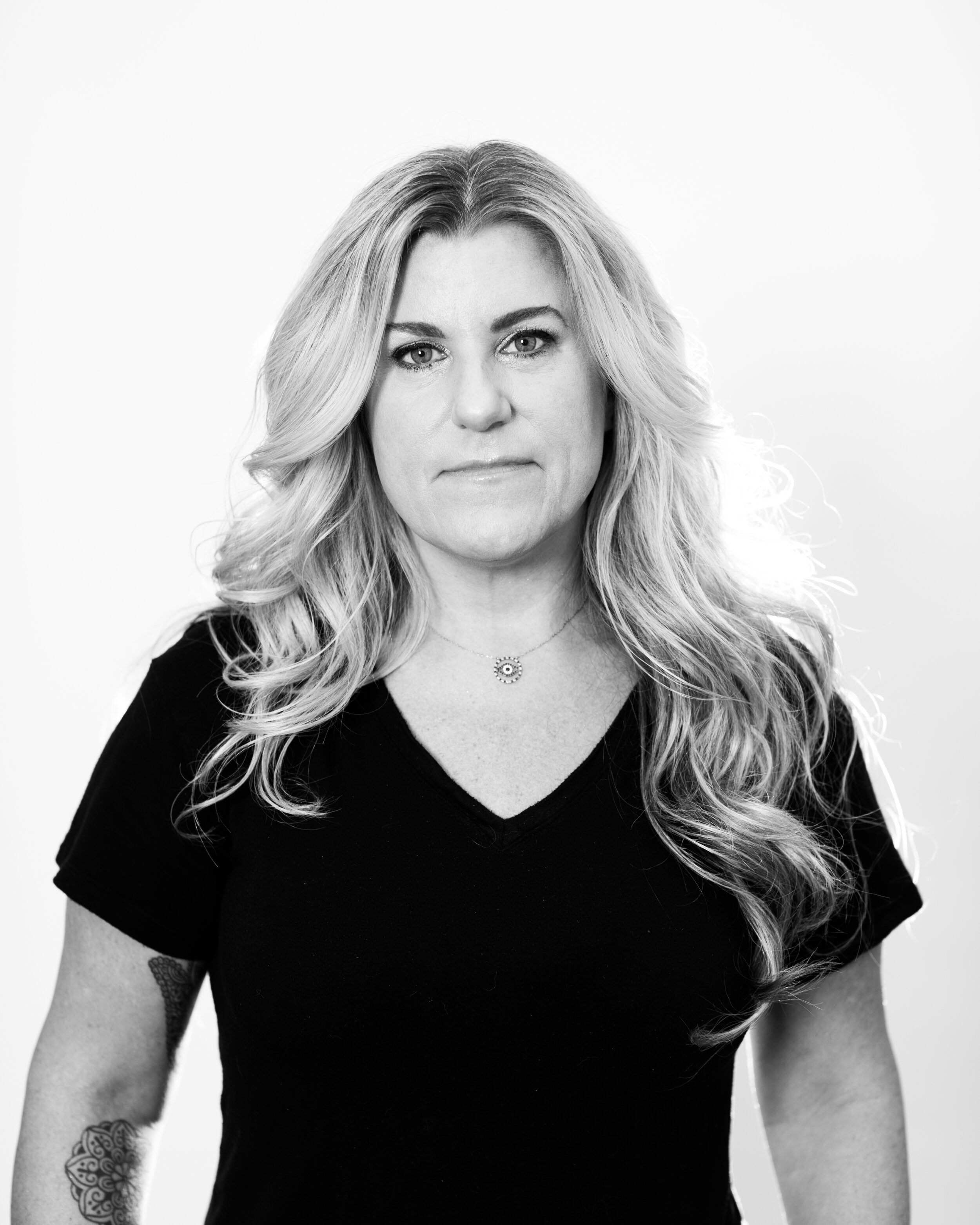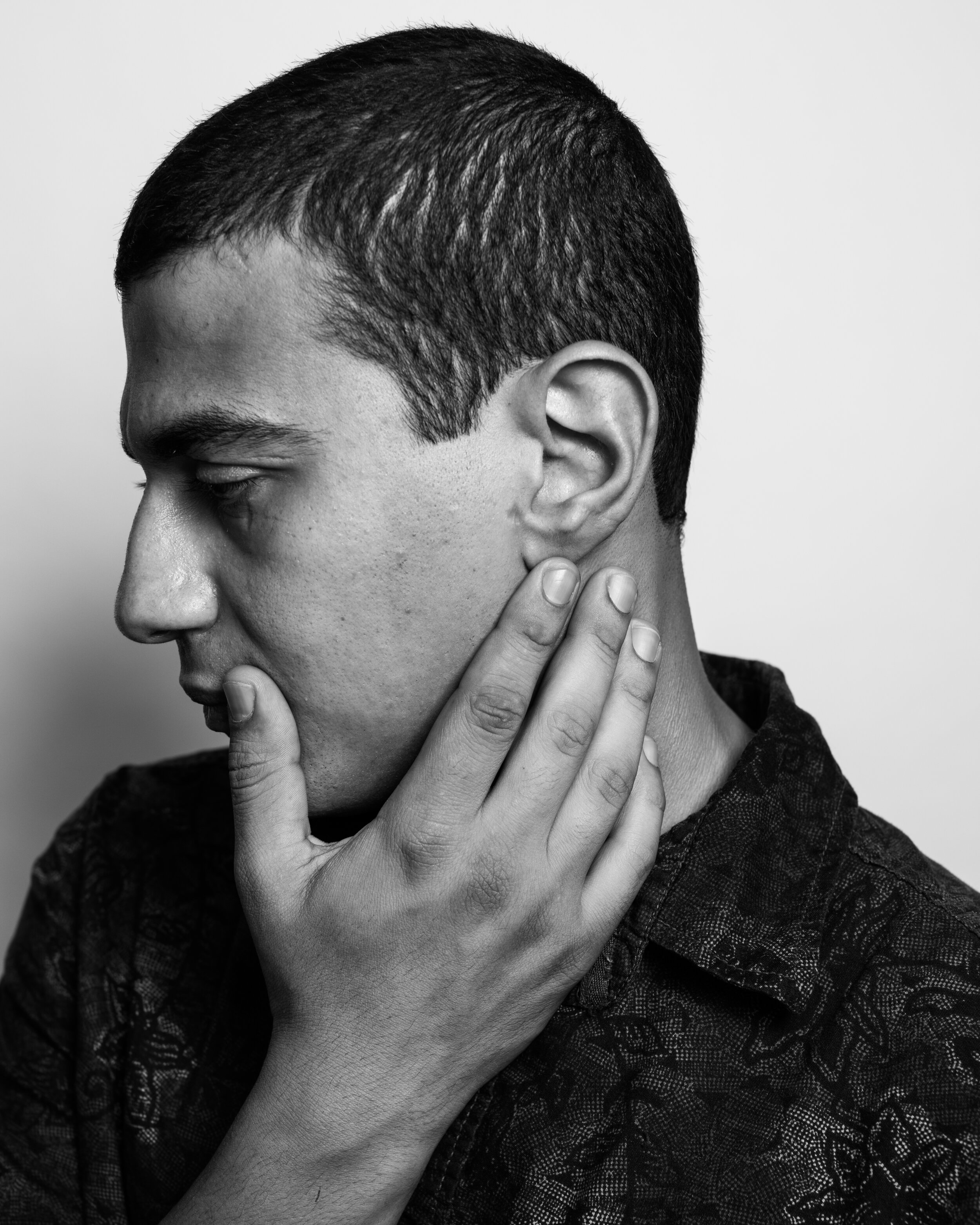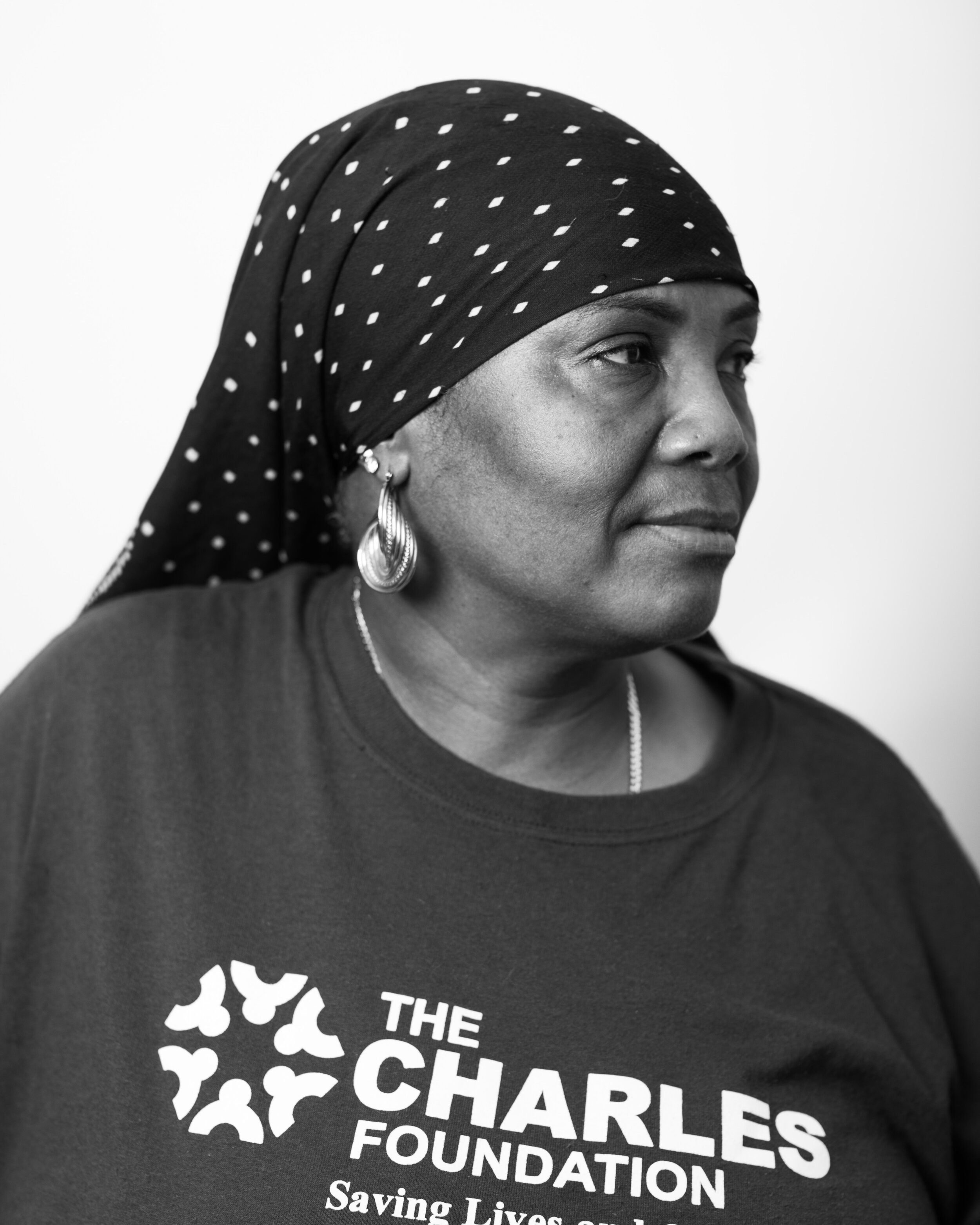Where Were You
Honoring the 20th Anniversary of 9/11
Twenty years ago our world was transformed. For most of us, the memories are forever engraved into our beings. Some of us sat in class, a few of us had to explain what happened to our children, others didn’t believe this was our reality, and all of us were forever changed after September 11th, 2001.
Where Were You is a biographical portrait series diversely showcasing everyday stories from everyday people. These conversations organically unfolded with people from all walks of life.
The intention of this series is to educate and create meaningful connections while preserving and sharing stories of our humanity. Let’s create compassion by sharing our stories of strength and vulnerability.
WE WILL NEVER FORGET
Movita Johnson Harrell
Social Worker / Gun Violence Advocate
“What people don’t know is that me wearing my faith is me armoring up everyday. That’s my armor. That’s my protection.”
A Muslim Mother in America
“On September 11th, I had actually been working that day. At the time I was a case manager, I was in and out of lock down units that day visiting people who were in the hospital on 302 petitions. Those are people who can’t get out of the hospital because they can be a danger to themselves or others. I didn’t have access to the television. I didn’t have the radio on. I went and picked up my children from school around 3:30. When we got home, one of my children turned on the television and, of course, every news station was talking about what was going on. I sat down on the couch, confused. I was seeing the plane literally flying into the pentagon and flying into the World Trade Center. It couldn’t register at first. It was so devastating. My children were around me. The news started talking about terrorist attacks and Muslims. I was a Muslim mother of four young children. That was very alarming for me. Not just what was happening to our country at the hands of terrorists, but how I knew this was then going to affect Muslims afterward. So, I had to have this difficult conversation with my children that there are people in this world that hate. People hate for a variety of reasons, the color of their skin, because of the religion they practice, because of the mistakes they’ve made in their own personal lives; people have hate and this was a direct result of hate.”
Q: How did your kids respond to that?
A: “They were different ages and very young. I think at the time, they were 9, 10, 11, and 15. And they were confused. My young children were always taught to love people no matter who they are, what they believe in, what they practice. I mean, I have friends from every corner of the world that you can think of. Thanksgiving at our house looked like the United Nations. So, my children didn’t know this part of the world and now they are being exposed to something so awful. I had to have this difficult conversation with them. I told them that there are people who will hate you because of what you practice. And then, I started hearing of the death tolls, the people who didn’t make it out of the World Trade Center, the people who were on the planes and the heroism of so many people; and that’s what I told my children. In that moment, we had to focus on the love part of this not the hate part of this. There were heroes that saved other people by crashing that plane in that field, by turning on those attackers. There were people who came to the rescue to the people in the World Trade Center. Like the people in the river who took boats to take people to safety. I made sure I focused on the love part of this and how we needed to learn a lesson from the hate part. Love always trumps hate.”
Q: As a Muslim woman in America, how has things changed since 9/11 for you?
A: “Muslims are still attacked on a daily basis. I mean, look at my swearing-in, in the House of Representatives. People get it very confused. Extremists were saying this is Jihad. This is not Jihad. You experience Jihad. Everyone on this planet experiences Jihad. What Jihad is, is the internal war between right and wrong, the internal war between good and evil, the internal war between war and peace. That’s what Jihad is. Jihad is not getting on a plane, taking it over, and crashing it into the World Trade Center to harm this country. That’s not Jihad. So, Muslims were attacked after that. I mean, Muslim women were attacked in Philadelphia after that; they were attacked on the streets by people; a woman was pushed onto a train platform. I’ve been Muslim since I was ten years old. My mother converted to Islam in 1976 and at that time Islam was not popular in Philadelphia. I was bullied. I was picked on. My Khimar was pulled off my head in school. I experienced all of that. And even though Islam has been one of the fastest growing religions in the world, it’s still seen by some people as negative. It’s stereotyped. Islam is seen as terroristic. Not much has changed sadly. One of the changes is that the religion has increased so much. Philadelphia is one of the largest Islamic communities in the country. The one thing I always encouraged my children to do, because you may never be able to change someone’s mind about something, but what you can do is give them a different perspective of something. That’s how I’ve always tried to carry myself as somebody that engages anybody, that will help anybody…that’s true Islam. People don’t realize the true word of Islam means peace. That’s Islam. My service to the community that I’ve never gotten paid for, that’s Islam. And so, the conversation I had with my children was: Just be who you are, just be inviting, just be engaging. Even people who show you hate. Like when I was sworn into office, I was told I didn’t belong the first day I was there. She (a PA House Representative) did a ninety-second fire and brimstone speech, telling me I can only bow to Jesus. This was because I was Muslim. And what did I do? I didn’t come at her. I waited until I got the opportunity to see her face to face and I told her I would love to have a meeting with her. We never had that meeting. When I was going up to Harrisburg, I wasn’t what they perceived me to be. That’s why I made friends across the aisle very quickly after getting there because they had a preconceived notion of who I was because of what I look like, from what I wear on my head, my over garments, because I wear my faith. What people don’t know is that me wearing my faith is me armoring up everyday. That’s my armor. That’s my protection. When I got my nomination, someone asked me “you’re going to take that off of your head, right?” I said, “Absolutely not, it’s a part of who I am.” Here’s the thing, those people that did that on 9/11 might consider themselves Muslim, but we consider them terrorists. Muslims consider them terrorists. They were looking to harm this country and to harm the Muslims in this country. They didn’t care about Muslims, Jews, Buddhists, Christians; they just wanted to harm this country. Period. And they blamed it in the name of Jihad. That had nothing to do with it. I cried a lot after that.”
Kathy Killian
Vice President of Administration for the Philadelphia Phillies
“We knew that the first tower was hit but it wasn’t until the second tower was hit when everyone started to realize that this might be a terrorist and not a mistake by a pilot.”
Remembering the Silence
“I was driving to work that day. I came to work, and we were down at Veterans Stadium. I specifically remember being early to work, so there were only a few colleagues in and in every corner of our office there was a TV, typically we only had them on for when there were Phillies games, but that particular morning my boss had it on. She was kinda telling us that there were some things going on and then we were all kind of fixed to the TVs for the next two hours. That’s where I was when the first tower hit and then a half an hour passed and the second tower was hit. I was at work with colleagues and I think the thing that sits with me the most is the silence of the room because in that moment no one really knew what was going on. We knew that the first tower was hit but it wasn’t until the second tower was hit when everyone started to realize that this might be a terrorist and not a mistake by a pilot. I remember the people talking, doing the news, no one knew what to say. I don’t know. It was the silence that was killing me that day. Everyone was trying to get information and find out what was going on but because those two acts happened, the devastation of what had just taken place was still like, why did this happen? It was the beginning of a very busy day. It was overwhelming. I remember we put the phones on at nine o’clock and no one was calling. So that’s why the thing that sits with me the most is the silence of it all because no one could figure out for that first hour exactly what was going on. So at work when people started to finally come in, you could see and sense how tense, sad, and worried everyone was. And then we were allowed to go home. We didn’t stay til lunch that day because people were worried about family, schools were getting let out. I remember being in work for only half a day because David (Montgomery) came down and said we all should head home. The rest of the day was spent watching TV in complete silence: What just happened to our world?! Luckily I didn’t have any friends directly affected. My niece wasn’t living up there at the time but I remember friends of friends that didn’t come home.”
William Rush
Department of Veterans Affairs
“We were in Baghdad. It definitely was not Kansas anymore.”
The Soldier Turned Civilian
“I was living in Miami. Just being a civilian. I was asleep on the couch and a buddy of mine said we are being attacked. I didn’t know what he was talking about, I just played it off, and nonchalantly turned on the TV and there it was. We were being attacked. It worried me. How many planes are up in the air at once? It pisses you off. It worries ya. It worries you because you don’t know where the next ones coming from and it pisses you off because you don’t know what to do about it. My family has been in the military since my grandparents. My dad was in the military, so for me, that’s just what I wanted to do. So, that’s what I did. I joined up and went to Fort Knox Kentucky to do my basic training there. Then I went to Fort Riley, Kansas. I was in Fort Riley for, I don’t know, two weeks, then I deployed to Iraq. So, that’s when I got there in 2003. We were in Baghdad. It definitely was not Kansas anymore. We did that tour. We were the last ones of the first group that deployed to go over there to fight the war, and we were the last ones to come home out of that group. Everyone else went home and was seeing their family. But, we were still there and everything. It sucked. So, we finally go home. We do our training, even though we just got home. Whenever you come back from duty we have training we still have to do, we have families, jobs, and you’re trying to make up for all this time you lost and then you get redeployed again. So now you’re back up to 2005-2006 whenever I was there again. We were there for fourteen months. It was no different than the first time, I think it was the same. They said the war was over but we were still losing people. So to me, that’s still an active war. I’ve always felt like if we’re still losing people, we are still at war.”
Q: How does it feel being a civilian now?
A: “It’s been a big adjustment to civilian life. I really don’t understand, still, how to be a civilian. I still run everything like a twenty-four hour clock. Looking at what’s going on today in the World, in this day and time, with everything going on in Afghanistan, even though I never served in Afghanistan, it’s still a kick in the nuts. It’s a kick in the gut. What did we even do? We just gave it back to them. We lost all these people for no damn reason.”
Q: How are you coping with these thoughts?
A: “Oh you know I talk to my buddies who served and everything else. We just hash it out. I have it out with counselors all the time about it. They’ll say, “Well let’s talk about it.” No, I don’t want to talk to you because you’ve never been there. Because everyone always tells you, “I feel bad for you.” You go to talk to these people and they act like they’ve been there but they haven’t. And to me I just don’t get it. How is me having a life experience and you never experienced it, how are you going to make me feel any better? It drives me up the wall. The people I served with, we’ve always stayed in touch but it’s definitely picked up a bit. That part has been nice. Having someone to fall back on.”
Teresa O’Rourke
Stay At Home Mom
“How do you tell your kid you don’t know the answer to their questions?”
Remaining Calm in Times of Chaos
“I was at home with my husband at the time. I remember the first plane hitting and worrying about my children. So, I drove to their school, grabbed my daughters and I brought them home. I remember sitting there in disbelief. My daughters had to witness the second plane crash into the World Trade Center and no one knew what was going on. None of us knew. I remember being told that there was a plane heading to D.C. and flying over PA. I haven’t been the same since.”
Q: How did you talk to your children about this?
A: “I wasn’t sure what was happening and I told them that and that we would be okay and stick together. I didn’t know what else to say. You could’ve heard a pin drop for the longest time. It was the least words ever spoken for that many people in the room because nobody knew what it was at the time.”
Q: How did you explain it to the school when you were picking up your daughters?
A: “Well the school didn’t want me to get you. They didn’t know what to do. They wanted to lock down and I said, “No, she’s coming with me.” And they asked me to remain calm because I was very anxious. They told me to go to my daughters’ classroom and get you, so I did. I grabbed you and said we were going to have an early day. I took you home. You didn’t know anything was wrong. Based on my actions, you didn’t know what was going on until we got home. And you just said, “Why is this happening?” And I didn’t know what to say. How do you tell your kid you don’t know the answer to their questions?”
Jimmy Pelletier
Skateboard Charity Activist
“I remember the traffic being backed up from New York City all the way on the Long Island expressway, 40 miles out. The smoke, the smolder, the stuff was floating that far away. ”
City Skater
“I was in New York City September 10th, about 10:30 at night. I was going to a punk show, Stiff Little Fingers, I think the show was over by midnight and then I got some food and headed back on the train. I had a night job at the time so I didn’t wake up until 2 or 3PM and found out really late about what happened. I remember the traffic being backed up from New York City all the way on the Long Island expressway, 40 miles out. The smoke, the smolder, the stuff was floating that far away. One of my good friends, his father, never came home. His father worked maintenance on one of the Twin Towers at ground level or basement level. It was super sad. I was skateboarding between the Twin Towers the week before. It was really heavy. Sadly I wasn’t born and raised in New York City, I was going there since 1991 for skating. The skyline looked different after that, there was a big gap. The people born and raised in New York noticed that instantly. Some of my favorite New York skateboarders actually rode for Zoo York and are New York Firefighters now but after 9/11 my love, respect, and admiration for Firefighters was on another level. I really love everything they do for people. After that, I realized they are the bravest human beings ever. To go into something like that knowing you may never come out, I mean really, it’s incredible.”
Betty Zimmerman
Veterans Coalition of Pennsylvania, American Gold Star Mothers Inc. Vice-President of Pennsylvania / Berks County Chapter President & Forget Me Nots of Berks County
“All of our military did not serve in vain. They gave it their all. They are still giving it their all. ”
A Mother On a Mission
“Actually I was in the car with my daughter driving to the doctors when we heard the news. At first, we thought it was just an accident, ya know, an airplane accidentally flying into a tall building. And then, when we heard about the second plane, then we heard about the one at the Pentagon, and then we heard about the one in the Pennsylvania field, we knew we were going to be at war. So by the time I got back from my doctor’s visit, school let out. Travis came home. Travis was crying. Very upset about what went on, so, I talked to him about what was going on and tried to ease his worries and my daughters worries and my own worries…ya know? But, long story short we all know what happened. Out came Bush, out came the war. Now, through that, I didn’t know anybody that died or got hurt on 9/11 but through that date was the date that Travis decided he was going to become an infantry man. Nothing else but an Infantry man because he wanted boots on the ground. He said he didn’t want to have a family and have his family filled with fear, that terrorism wasn’t going to hit home. And, he mentioned “if I don’t stick up for it, who’s going to stick up for it.” Turns out, in eleventh grade, he signed up with his buddy. He signed up for the army. His dad was telling him “dude, go into the air force, it’s not as dangerous as being an infantry man.” His mom didn’t want anything to do with the conversation. By the way, I’m Travis’s step mom. And, I kinda was the one to, I’m not going to say encourage, but, I supported him in his decisions. 2005 he graduated, thank God he was able to go to his high school trip to Mexico, when he got back is when he went to boot camp. He went through boot camp at Fort Benning, Georgia and then he got shipped to the 101st Airborne division at Fort Campbell and that was in the Tennessee area. And um, he got shipped over late, because it was 2006. His unit was already over there serving. Travis was 19 and was the young buck. And you know how hard it is for the new guy but Travis got in there and fit right in with all those guys. They loved him. He fit right in with them guys. They had his back, he had their backs. He saw hell and I heard a lot of hell because I was Travis’s battle buddy, ya know, he didn’t want to talk to his father because he didn’t want to be seen as weak in his fathers eyes, he didn’t know to talk to his mother because his mother wouldn’t understand. So all he had was me and the people that he served with. So yeah, I heard some horrific stories um one, I can. He asked me for Band-Aids. I said “Band-Aids?! What do you need Band-Aids for?” He says, “Well, I got a little graze on my arm and the Band-Aids that the Doc has here don’t cover the wound.” That’s all I had to hear. CVS here I come. I got band-aids, I got gauze, I got wound care, I got antibiotics, I got spray stuff, I got like a twelve by twelve box stuffed with medical equipment. So much so that Doc and the other guys said please don’t send anymore. So, Travis, in the short time he was there, exactly two months, February 22nd he arrived and April 22nd he was killed. Two months. That’s all it was. Two months.”
Q: And when he was there, how was his demeanor on the phone?
A: “Well I know how to read people, and I knew Travis so Travis was like “everything is okay here” ping ping ping in the background. Ya know like, “Travis, is that gunshots?” “Yeah, someones goofing off.” Here it wasn’t, they allowed him to use the radio phone out in the field because he was outside of the green wire, the green zone its called. And he was actually in, what they call, the Triangle of Death. I tried to support him and told him to go to the Chaplin. And he said, “No you don’t understand I can’t go to the Chaplin because the other guys will think I’m weak.” So, I just listened. I heard him and gave him what I could give back to him. He called once a week unless he was out. When he was out of the green zone they allowed him to call on the field phone because he would be out ten days at a time on a mission, five days on a mission. Nineteen, doing that. And the guys all knew he was the youngest on the team so they all supported him and allowed him to talk to me and I even talked to some of the other guys. Travis needed something I guess. While he was out of the green zone, he found a little hedgehog, and you’re not allowed to do that, but the guys let him so he brought it back and hid him. Travis had this little pet hedgehog, and when Travis died, the guys kept him and then they set him free. Ask anybody you know, Travis was always for the underdog, always helped out, oh he’d make you laugh, yes he got in trouble. He was somebody you wanted by your side. Seriously. Our country was God blessed to have my son. For him to stand up for what he did and what he went through. Damn lucky to have him because you know what, I don’t have him anymore because he gave himself to our country so you and I could be doing this.”
Q: What is Travis’s legacy and what do you think he wanted his legacy to be?
A: “First off, he hated having his picture taken, so I know he wouldn’t like that there’s t-shirts with his face on it, and monuments, and bricks everywhere. I mean, he is all over the world. There is people in Alaska, people in Washington, they’re all over the world that know about my Travis. And what he really wanted was a family. He wanted to give me grandkids. He wanted a family and he wanted to come home and have a big party. I got a procedure changed. Right before Christmas I got a phone call. It was from the Navy. They said, “Hello, is Travis Zimmerman there?” I said, “Who’s calling please?” He said, “Well this is the Navy.” And I said, “Well, what can I do for you?” He says, “I want to offer Travis a chance to tour the world.” I said, “Excuse me, you need to get your paperwork straight, my son already gave his life for his country. He was killed in Iraq on 4/22.” I said, “How dare you call. Where is your supervisor?” At the time, there was this lady who worked for the casualty people. Now, it’s the same in the Army, Navy, Marines, Coast Guard, Air Force. They never coincided and checked the DOD. The Army has their DOD list, their killed in action report, silver star report. Now, all services have to check each and everybody’s DOD list so that will never ever happen to another Gold Star Family ever again. Thank you God for allowing me to get that done, no, for helping me to get that done. So that was one big major change there.”
Q: Did you ever have a problem with speaking out against injustice? I feel like it’s so effortless for you, was it always that easy?
A: “I never knew what Gold Star was. I never knew what Silver or Blue Star was. I never knew what POW MIA was. None of that until Travis was killed. I knew about veterans because my Uncle was a veteran, a Vietnam Veteran from the Air Force, he retired Master Chief. I had family members who were in Korea and Vietnam but it never hit me how deep it was, how close a community it was until Travis was killed. And, talking about speaking, when it comes from your heart, it’s easy. The words flow like butter. Let the butterflies fly, and each of them has a message on their wings.”
Q: And what’s your message you want people to know?
A: “All of our military did not serve in vain. They gave it their all. They are still giving it their all. And yes, God forbid, there is going to be more deaths. There’s going to be more Gold Star Families. There is going to be a lot more Silver Stars. And all we can do is pray that God has our backs, that God has America’s backs because America needs to wake up. This is Betty speaking, it was wrong what happened. We shouldn’t have thirteen more Gold Star families and over sixty more injured. And, do you think it’s all kinda funny it happened right around the twentieth anniversary? I can’t go any further. I can’t speak about it right now. I get too angry. It’s anger, and it’s fear. We just gotta be prepared. Mentally, physically. We have to be prepared for what’s going to happen and we can never ever forget those who laid the groundwork before us, to keep us safe for as long as they did. And still are.”
Q: How are you coping?
A: “One day, one hour, one minute at a time. I do arts and crafts, I garden, I get back in nature and put my hands in the dirt. It’s grounding. I spend time trying to help veterans. I try to help Gold Star Families. Now I’m saying Families, not just mothers. And I help all those that loved Travis so much and miss Travis so much. When I told you Travis wanted a family, he wanted to give me grandkids. He did. All his friends’ kids call me Mom Mom Betty. I have couches full of pictures, me and at least 6 kids. And to everyone of them I’m Mom-Mom Betty. So, Travis did give me grandkids. So, here we are with Travis. I never cried. I kept busy. As long as I kept busy, I didn’t have to think. As long as I kept busy, I felt important, I felt needed. To spread the word, to give them what they needed, give them what they needed to hear. Taylor, I’ve touched you. And it’s not me myself, it’s the powers that be. They give me the power to be able to speak. It’s all in the heart. You know, I did go see a psychic, and the psychic told me that, and boy was she hitting it spot on, and she said to me that Travis and I were always meant to be. That I was here on this earth to help them cross over and Travis was on the other end receiving them. And that was more than one psychic that said the same exact thing. So, you know like I said, you believe in what you believe in, if it’s God or a higher power or Mother Earth, energy, it’s all the same, it’s all a higher power. He’s in charge, she’s in charge, who knows, you know? I believe in Jesus Christ and I know that within Jesus Christ that’s what gives me the willpower to speak and to stand for what’s strong. That’s me. Through God’s mercy. Well you will have to Google Travis’s name and some of the events, they’re all across the internet. You’ll see some speeches I’ve done and I’m not saying that to pat myself on the back at all, It’s just to give you a sense of a background of how it is I speak to others. Like who knows, speaking in front of all them at Rolling Thunder, 100s of them, those guys were in tears when I was finished. And I was glad. Because that gave them an opportunity to open up emotionally and get out those bricks that are on their shoulders. Brothers cry in front of brothers all the time. There’s nothing not sacred between brothers. Travis and Tim were like this (crossed fingers tightly) and they both made a pact, saying “if anything happens to me Tim, I want you to send roses to my mom.” Tim said, “if anything happens to me Travis I want you to send roses to my mom.” Tim sent me roses. I got them dried. They’re in my bedroom. Brotherhood sticks with brotherhood. When one of them makes a promise to the other, they hold onto it. Travis changed a lot of lives; he brought so many people together. Maybe that was God’s plan. We were gifted Travis for a time, and our time was up. It’s making sure they’re not forgotten.”
“Right now you’re doing a big thing by spreading the word. It’s good, it’s all good.”
Joe Cox
Bike Food Deliverer
“Sitting at a little desk, watching the TV, I saw history unfold.”
French Class Turned To History
“I was in 9th grade French class. I remember we turned on the TV and everyone was scared. We were all watching. I believe we were all in disbelief of what was actually going on. The plane hit one building; they were talking about another plane coming to hit the Pentagon. Everyone was really scared and didn’t know what to do. Sitting at a little desk, watching the TV, I saw history unfold.”
Jennifer Storm
Writer, Consultant
“In my career as the Victim Advocate, having one of the sites be in Pennsylvania, I have gone up to Shanksville on numerous occasions, I’ve attended many events, I’ve helped multiple survivors or individuals whose families were lost on that flight and that’s been a really wonderful way to give back and honor.”
Hypervigilance
“I was sitting in Archeological class at Penn State, we had just heard something had happened. They took us out early and I went to the hub, which is the student union building. I remember walking in, and the student union building was huge, it had this massive television and so the Today Show was on, and the hub was littered with backpacks. I remember seeing tons of backpacks of kids watching the first plane hit, and then the second plane hit as I went into the building. I had an office in that building because I was a part of the LGBTQ organization on campus, I was the president at the time. So I went up to my office and was panicked. I didn’t know what was happening, felt incredibly scared, and then there was little television outside of my office and I heard something, so I came out and saw the plane being taken down in Shanksville. It felt like the world was ending. I remember I called my parents and just started sobbing. I asked if the world was ending, like what is happening? We just fell under attack, you didn’t know what to expect next. There was this heightened sense of everything. I went home, I was living with my girlfriend at the time and I could not stop watching TV, I was glued. I watched probably for two days straight, just watching coverage and just waiting to see what was happening next. From the impact to the towers falling and then it was all the recovery after that, just watching people sort through all that wreckage and praying and hoping they would find somebody. Then they just never did. Horrible.”
Q: When you were talking with your family or your girlfriend, what did they say to you to help alleviate any of the pain you felt?
A: “I think my parents were in shock. And of course they tried to quell my concern of the world ending, right? But, you could tell they weren’t one hundred percent convinced. I don’t think anybody was. I do remember, so in the afternoon of September 11th, I had my sociology class, and it was race and ethnic relations. So, it was a class that I was a teaching assistant for because we had big dialogues, the whole class was about dialoguing about the hard stuff. In that day in class, we all just got down on the floor and sat in a circle together and just shared what we were going through. You know, it was scary. There were some people that were incredibly angry, some that were already engaging in political conversation, like understanding and appreciating the how of it all and the why of it all, and then there were people that were just receiving phone call after phone call because they didn’t know where their loved ones were at. I mean, Penn State is this conglomerate of kids from all over the country, but a lot are eastern state kids… a lot of people from D.C., a lot of people were from New York, people didn’t know where their parents were or where their brothers or sisters or aunts and uncles were because they worked I one of those buildings. So, I remember that really vividly. It was nice to have a circle of support that day and to have a safe place to say whatever you needed to say. Whether it was wrong, indifferent, it was important.”
Q: Do you think anything was internally altered within you after 9/11?
A: “Oh god yeah. I think your sense of safety and stability and you know you think, you grow up in America and think we are untouchable, and then you completely realize how much bullshit that is. That day, it was made real for a lot of people. And of course, I was already in a space of being pissed off politically and knowing this wasn’t an accident. This could have been prevented. Our country has no business being in places sometimes and the motivation is all about helping nations, which is bullshit. The motive is money and guns and power and it has nothing to do with the altruistic message you want to believe, it’s more to get white men really wealthy. We launched a war on those not even responsible for the attack. It was utter insanity. Then it got disgusting and you didn’t want to watch the news anymore. Yeah.”
Q: How do you cope?
A: “I engage in self-care everyday with all of the trauma I have endured. It’s just one of those things. The unique thing about 9/11 is as a country no one can say they don’t understand trauma now. Varying degrees, but, as a nation we were all collectively traumatized that day. I know for days, weeks, months, I could not hear a plane. And keep in mind, days after the attack, there were no planes, that was eerie. It was just silent. We haven’t had that silence since COVID. You think, 9/11 there was this collective silence in the nation and then it happened again during COVID, for very different reasons obviously. I remember when I would see a plane I would freak out. I would think, where is it going to go, what’s going to happen, is it going to fall out of the sky, is it going to crash into my backyard or hit something? The way you cope is by honoring the lives lost. In my career as the Victim Advocate, having one of the sites be in Pennsylvania, I have gone up to Shanksville on numerous occasions, I’ve attended many events, I’ve helped multiple survivors or individuals whose families were lost on that flight and that’s been a really wonderful way to give back and honor. Every year on 9/11 I sit in silence in those moments I am thinking about the families, and I will make a social media post in honor of those individuals who were lost because of the heroism and there are parts of that, like the sheer determination of people. I will say if there is a documentary on 9/11 I will watch it, I get engrossed in a way I don’t much else. It’s kind of in kin with the Challenger Shuttle crash. I was a baby, a little nugget, when that happened. Sitting in like fifth grade, and we watched it. All classrooms were watching it because it was like ‘oh-my-gosh there’s a teacher in space and it’s a female and amazing and then it crashed and the reality that those people died. So yeah, in sorta the same way as the Challenger, there are things that I see about that that are similar. Because what happened with the Challenger was isolated, it was really horrific and sad, but accidental. What happened on 9/11 was intentional and insightful and it was an attack. Those of us that went through the Challenger, I don’t think we became hypervigilant as a result, we didn’t become fearful. 9/11 dismantled any framework of safety I had as a student or as a person because you didn’t know what was going to happen next. Listen, I’m sure there are children that live in Philadelphia and live like that everyday because of gun violence on their streets. When you live in an environment, like a child that is living in a home with domestic violence, that kid doesn’t know when that next beating is coming so you’re in that hypervigilant state the whole time. Terrorism is subjective, it really is. Domestic violence is terrorism. It’s a daily fear, paranoia. You walk around your home and it’s a war zone, I can’t imagine.”
Ahmed Elmasry
Nurse, Lyft Driver
“I was stabbed here and here (points to face and ear). Somebody tried to stab me with a box cutter. And so they tried to get my neck and missed and they got me from here to here (points to ear again). ”
Immigrating To America After 9/11
“I was traveling from Alexandria, Egypt to a small village type city in Egypt to say goodbye to my Aunt and her husband before I traveled to the United States to be with my mom. I was traveling and didn’t hear the news until I arrived to my Aunt’s house and she said “I don’t think you’re going anywhere anymore.” I asked what happened and I see on the TV it says the United States is under attack. I was shocked. I didn’t know what it all meant. I was fifteen. So, basically it was such a shock because I put my entire life on hold, stopped going to school, I was ready to leave and then this happened and I didn’t even know what it meant. My family made an executive decision saying I shouldn’t leave. My mom even tried to return my ticket. They didn’t think I was going to get in. They said, “We don’t want you to go through that.””
Q: What was that? What did that mean to them?
A: “I think that they knew there was going to be such a big difference in my life here before versus after 9/11. They didn’t think it was going to be good. The ticket was nonrefundable so I thought that I should go. I was supposed to fly in September 14th, 2001 and ended up flying in on the 18th or 19th. I remember my ticket was one day and I traveled from Alexandria to Cairo. I wanted to say goodbye to all my friends and all my family. I had to lie coming in. I told them I was just coming in for a couple weeks for a wedding because they were not taking in anymore long term visitors and that was what I was coming here to do. I had just come back from here. They were like “you were just here in August.” I was here before to visit my mom in 1999, 2000, and 2001. I had to go back home. Then I made the decision that I was going to go back and stay. I was so excited. Yeah. My mom was located in Philadelphia. My mom’s friends were attacked. She got attacked coming home from work, they took her pay, she was an old lady. I got attacked more than once. I was pretty much almost jumped to death. They told me to run, they told me to leave here. I didn’t understand. I was fresh off the boat when that happened, I was fifteen, I was in high school in Philly and I was a foreign kid and they didn’t like the way I was. They were throwing things at me and trying to intimidate me at every turn. Sometimes, some people were okay with you because you were a young kid but then once they’re angry or something happens then they take the frustration out on you. I was stabbed here and here (points to face and ear). Somebody tried to stab me with a box cutter. And so they tried to get my neck and missed and they got me from here to here (points to ear again). I tried to press charges but they tried to drag it out and we got tired of it. They wouldn’t show up to court so they knew what they were doing; we were immigrants so we cant put our lives on hold, we have to work really hard to put a roof over our heads so my mom and I can’t take off work to keep going to court. I was underage; the guy was in his forties. I was seventeen at that time. I was working at a pizzeria and it was originally over salad dressing. He was a delivery guy and he had to go back to a house to deliver that salad dressing. It wasn’t my fault, he got angry, and you know. He was like “I’m going to show you Arabs.” The pizzeria was owned by Arabs too. He said, “I’m going to show you Arabs to respect me.” He just came behind the counter, pulled out this box cutter, and yeah. He was fired after that, I quit. The owner, who was also Egyptian, told my mom that she better not press charges and better not sue him or else. He threatened her. It can be hard for an immigrant. He told her “if you sue me I’m going to make you regret you ever came to America.” So, I spoke decent English, I went to a British school in Egypt. After 9/11, as soon as people heard my accent, it wasn’t just like I was a dark skinned kid; it was like I was F.O.B., fresh off the boat. They would look at me with disgust and it made me anxious to even speak. So, I stopped trying to speak to people. Before, people used to be so nice, they would speak to you in multiple languages and try to speak your language, everything was cool. People are different here. There was a bus driver, I recall, I can’t forget. He looked at me a certain way when I said hello to him. I asked him about the bus fare, I ended up putting in a ten dollar bill because I thought they could give you change. It was the first time I had ever taken the bus by myself and he was like “There is no change. You have to put in $2.50.” He was so rude to me. I remember that was one of the times I told myself I am not going to talk to strangers. And then some people are nice to you but then come out with these covert questions that can be very racist, very attacking, like “why does your religion say to kill people?” They’re saying this to a fifteen year old. I never heard that. It (the Quran) never said that anywhere. I couldn’t make the arguments about the reasons everything is happening or politics, I was a kid. I didn’t understand and I still don’t understand. Who could ever understand it? I knew terrorism existed. We were victims of terrorism in Egypt. There is a fundamental extremist group of Muslims that formed these terrorist groups. It started from a group called the Brotherhood. It’s a collection of people from all over the Middle East that want to be an extremist power and they formed a faction that grew to be a political faction. In fact, one of them became President in Egypt. It was almost as shocking as Donald Trump because we kicked the old regime out and then the next thing you knew we had this extremist group we didn’t even know come in its place. When I left Egypt I never thought the Brotherhood would become a political faction. But it became one. It became so powerful that the majority voted him in. It took one year before they voted him out. He was in prison, came out, and then went back into prison. He was a political prisoner. After the new president was elected, a lot of extremists went into hiding and I don’t know, when I think of the most extreme people, I think of acts of terror. For us in Egypt, they thought we were idiots for not believing their beliefs; we were enemies for not believing and could be killed. That is just incorrect, this isn’t religion; these people are spreading murderous words. When you are screaming off these words, they’re persuading kids to do the dirty work for them, the ones that have no hope. There is terrorism that hurts the Egyptian government and the Egyptian people. They’ll blow up tourists’ buses and they blew up historical places. They wanted to sell the rights to the pyramids when they were in power. They wanted to sell the rights completely and melt all of the Pharaoh’s gold because they have crazy extremist beliefs and sometimes it’s self-defeating and makes no sense to anybody. There’s many times there were terrorist attacks in Egypt and we would be weary of someone with the extremist look. Religion is about ease of life, Islam is about ease of life and it makes you happier. Islam, the word itself, means to submit to Gods will. So, if a disaster hits you, you’re supposed to say “We’re from God and we are going back to God.” Or “just accept it.” We believe we shouldn’t do harm to anybody and God doesn’t give you anything you can’t handle. We believe that the extremists twist and turn the words to make it look like you have to fight everyone when there is nothing in Islam that says you have to wage war. The only thing it says in Islam about fighting at all is if you are being attacked its okay to fight but never attack. This is supposed to give the people the will or strength to stick up for themselves when they are scared. People take that to say who is your enemy and you have to get your enemy first, which is wrong.”
Q: How did it feel leaving your home that was receiving terroristic acts and then coming to America after a terroristic act?
A: “I was young and naïve. I don’t understand politics. But, I understand now that a lot of the reaction was out of fear. People were scared. I don’t know if something like that happened over in my country how people would treat Americans over there. I think it’s 2021 and there has been so much fear and misconnection and also a lot of acceptance and there are people that love each other of all colors and all races. I guess, I would have to say, people have to be more tolerant of one another and even I know everyone is God’s child so as much as I believe in my own religion, I can joke around and say “only one faction of people are going to Heaven” but that’s not what my God is like. That’s not what any God is like. God loves all his children and we have to love one another too. We have to be more tolerant. This goes to anybody who is holding onto hate in their heart, they should let it go. And definitely don’t pass it down to their kids or other people. Don’t be poisonous to this world, rather, be a light.”
Q: You were a kid just trying to better your life.
A: “Yeah. You wonder in the moments you most miss your family like, damn, I missed my nieces growing up. Was it worth it? What did I do it for? I think it was my destiny. It made me who I am. Obviously I am not the most successful person in the world and I would really like to keep working at it and make it worthwhile. Life can be difficult and it’s not even like every immigrant is guaranteed success, ya know, there are those stories of success where people go to America and hit gold and then they’re happy and they make their families happy. But, people here in America are not all successful and may not have such good luck or whatever it is and it would be one thing but its all of it like sometimes I’m treated badly, I really want a family, and I’m not really accomplishing anything amazing so what is it all for? My sisters come out and say, “Why don’t you just come down here?” I struggle with change, I’ve been here for so long so the idea itself is so shocking to me just because I’m so much more on my own now. I’m not used to being close or living close to my family. That’s just the type of person I’ve become from being a foreigner on his own. You kind of have to be on your own and by yourself a lot so I’ve done it for so many years it’s kind of a shock to not do it but I’m sure I can adapt. It’s a great thing to adapt to. I’ve been here longer than I was in Egypt. I’m grateful for every breath that God gives me. I’m so grateful because it’s a blessing to be alive. Whether it was the right decision or not to move here, I’m not sure and couldn’t tell you that. I question that everyday. But, I’m blessed to be alive and it’s what God gave me so I’m glad for it, I’m blessed for it, I’m grateful for it. There is so much scripture that speaks to me, the Quran speaks to me, it touches everyone. I can interoperate a lot of things and see metaphors in the things. Let go of the hate and follow the light. Why do you want to be so angry at this certain type of person? Why do you want to be angry at certain middle easterners? Maybe they’re invoked by all the bad press, like wow, this is really bad. Maybe they have strong political beliefs that manifest into hatred towards a certain group. Maybe they have blatant hatred towards a stranger. I never understood. I could never understand how someone could be so angry and you say why you are angry and they make up some sort of excuse even though that’s not the situation and they’re angry anyways. What do you say to that? All I want to tell people like that is let go of it. And if you can’t let go of it, don’t pass it down to your children, let them make their own decisions and be clean from hatred. There’s no way that’s a good thing. Sorry to get deep on you.”
“If we learn nothing else from this tragedy, we learn that life is short and there is no time for hate.”
Resources
Each year on 911 Day, people are asked to remember and honor by doing good deeds in service to others. Learn more: 911day
The 9/11 community is comprised of a diverse and growing population of individuals who were impacted by the terrorist attacks, and who have found healing by memorializing loved ones and uniting in shared grief and purpose. Get connected: Voices Center for Resilience
Make a difference by using your creativity to give hope, show compassion, and promote healing. Get started: Stars of Hope USA
Love is stronger than hate: New York Says Thank You

